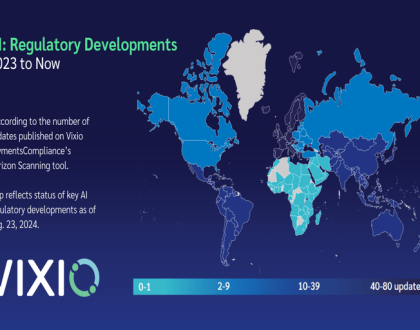Payment Service Providers – Are They Truly Secure?

Providers of payment services play a crucial role in the digital economy, offering convenience and facilitating transactions. However, I often find myself questioning their security measures. Are you aware of the potential risks involved when using these services? In this blog post, I will explore the security features of various payment service providers, examining how they protect your financial information and what you need to know to safeguard your transactions effectively. Let's investigate the world of payment security together.
Understanding Payment Service Providers
A payment service provider (PSP) acts as an intermediary between merchants and customers, facilitating online transactions. They help businesses process various payment methods, including credit cards, debit cards, and digital wallets, ensuring a smoother and more secure transaction experience. In an increasingly digital economy, understanding how PSPs operate becomes imperative for both businesses and consumers.
Definition and Role in Transactions
To grasp the importance of PSPs, it is crucial to define their role in online payments. A PSP provides the infrastructure needed to accept and process payments, often integrated with e-commerce platforms. They handle data encryption and regulatory compliance, ensuring secure data transmission between the customer and merchant.
Types of Payment Service Providers
Payment service providers vary significantly in terms of services offered and payment modes supported. Here is a brief overview:
| Type | Description |
|---|---|
| Full-Service PSPs | Offer a comprehensive suite of payment processing solutions. |
| Aggregators | Allow multiple merchants to process payments under a single account. |
| Payment Gateways | Facilitate authorization and transaction processing for online payments. |
| Mobile Payment Providers | Specialize in transactions conducted via mobile devices. |
| Cryptocurrency Payment Processors | Enable transactions using cryptocurrencies like Bitcoin. |
Payment service providers can be broadly classified as follows:
- Full-Service PSPs manage everything from payment processing to risk management.
- Aggregators simplify the processing experience for small or new merchants.
- Payment gateways focus on the transaction authorization process.
- Mobile payment providers offer solutions optimized for mobile commerce.
- Cryptocurrency processors cater to the growing demand for digital currency transactions.
The variety of payment service providers available today ensures that businesses can find the right fit for their transaction needs.
Security Measures Implemented by PSPs
Assuming you're considering a Payment Service Provider (PSP), it's necessary to understand the robust security measures they implement to protect your financial data. Leading PSPs utilize a mix of sophisticated technologies and regulatory compliance to ensure safe transaction processing, which not only safeguards your information but also fosters trust in digital payment ecosystems.
Encryption and Tokenization Technologies
An effective PSP employs encryption and tokenization technologies to secure sensitive payment information. Encryption transforms data into unreadable code during transmission, while tokenization replaces sensitive data with unique tokens, thereby minimizing exposure. These measures significantly enhance your financial security by ensuring only authorized parties can access your information.
Compliance with Standards and Regulations
Encryption is a critical component of compliance with industry standards such as PCI DSS (Payment Card Industry Data Security Standard). These regulations are designed to protect cardholder data and apply to all entities involved in payment processing. Compliance not only demonstrates a commitment to security but ensures that necessary measures are in place to mitigate risks.
Security is paramount when it comes to compliance with standards and regulations. I consistently highlight that adherence to PCI DSS is necessary for any PSP, as it delineates specific measures to protect cardholder information. Regular audits, employee training, and security protocols are just a few components that ensure ongoing compliance. As a consumer, you should feel confident that your PSP is not only compliant but also committed to maintaining the highest security practices.
Risks Associated with Payment Service Providers
Now, while payment service providers (PSPs) offer convenience and efficiency, they come with inherent risks. The nature of online transactions makes them susceptible to various threats, including fraud, cyberattacks, and data breaches. Understanding these risks is crucial for both businesses and consumers relying on these platforms for secure transactions. I urge you to consider not just the benefits but also the vulnerabilities they may expose you to.
Fraud and Cybersecurity Threats
Cybersecurity remains a pressing concern in today's digital landscape. Despite employing robust security measures, PSPs face constant threats from hackers and fraudsters seeking to exploit vulnerabilities. You should be aware that no system is entirely immune to attacks, and it's important to stay informed about the latest security practices to safeguard your transactions and sensitive information.
Data Breaches and Their Impact
For every data breach that occurs, the repercussions can be profound, affecting both businesses and consumers. When sensitive customer information is compromised, it can lead to financial loss, reputational damage, and legal liabilities. I recommend regularly monitoring your financial accounts and employing strong passwords to reduce the risks associated with data breaches.
Providers that experience data breaches often face significant consequences, including loss of consumer trust and potential fines from regulatory bodies. Hence, it's crucial that you understand how PSPs manage your data and the measures they take to protect it. Always seek out providers with transparent policies and a strong track record in cybersecurity, as it directly impacts your security and trust in their services.
Evaluating the Security of PSPs
Many users often overlook the critical aspect of security when choosing a Payment Service Provider (PSP). It's crucial to understand how PSPs protect sensitive financial information. Evaluating their security measures can help you make informed decisions and safeguard your transactions against possible threats, ensuring that your payments are processed securely and confidently.
Key Factors to Consider
One must take into account several key factors when assessing the security of a PSP:
- Compliance with industry standards (e.g., PCI DSS)
- Encryption protocols used during transactions
- Fraud detection and prevention mechanisms
- Transparent security policies and commitments
Assume that thorough research on these factors can greatly enhance your overall protection when using a PSP.
Best Practices for Users
For optimal security while utilizing PSPs, you should adopt certain best practices that can mitigate risks. This includes regularly updating your passwords, enabling two-factor authentication, and being vigilant about phishing attempts. Protecting your personal information and monitoring account statements can further enhance your security and prevent unauthorized transactions.
Factors such as the frequency of online transaction monitoring and the creation of complex, unique passwords play crucial roles in ensuring your account remains secure. Always be cautious about sharing your financial information and use secure networks when conducting transactions. By implementing these strategies, you can significantly lessen your vulnerability and enhance your confidence when using Payment Service Providers.
Trends in Payment Security
All around us, the landscape of payment security is rapidly evolving. As digital transactions increase, so too do the threats that accompany them. I've observed that businesses are increasingly adopting advanced security measures such as multi-factor authentication and real-time transaction monitoring to combat fraud and enhance consumer trust in payment service providers.
Emerging Technologies
An array of emerging technologies is reshaping the way we think about payment security. Blockchain, for instance, offers a decentralized solution that can enhance transparency and immutability in transactions. I find the incorporation of artificial intelligence to analyze transaction patterns particularly exciting, as it promises to detect anomalies in real time, reducing fraud rates significantly.
Future Outlook for Payment Security
Emerging trends in payment security indicate a heightened focus on user privacy and data protection. I predict that as more consumers become aware of security issues, they will demand stronger safeguards from payment service providers. This shift will compel companies to innovate continually, adopting strategies that prioritize security without sacrificing user experience.
Technologies such as biometrics, tokenization, and machine learning are paving the way for a more secure future in payment transactions. I see a growing emphasis on user education, as understanding security features can empower you to make safer choices. As we advance, I believe that collaboration between businesses, regulators, and consumers will play a crucial role in building a robust payment security framework that can adapt to evolving threats.
To wrap up
Presently, as I assess the security of Payment Service Providers (PSPs), I recognize the ongoing concerns surrounding data protection and fraud prevention. While many PSPs invest heavily in advanced security features, I understand the importance of conducting thorough research to choose a provider that best meets your security needs. Ultimately, it's crucial for you to stay informed and vigilant, ensuring you implement additional protective measures in your transactions to safeguard your financial information effectively.
FAQs
What is a Payment Service Provider (PSP)?
A Payment Service Provider (PSP) is an intermediary that facilitates online transactions between merchants and customers. They manage various payment methods, including credit cards, debit cards, and digital wallets, ensuring secure and efficient processing of payments.
How do PSPs ensure the security of my financial information?
PSPs use encryption and tokenization technologies to protect sensitive payment data. Encryption converts data into unreadable code during transmission, while tokenization replaces sensitive information with unique tokens to minimize exposure to unauthorized parties.
What are the common risks associated with using a PSP?
Common risks include fraud, cybersecurity threats, and data breaches. Despite robust security measures, PSPs can be vulnerable to attacks, which may lead to financial loss and reputational damage.
How can I evaluate the security of a PSP?
Evaluate a PSP’s security by checking their compliance with industry standards (e.g., PCI DSS), examining their encryption protocols, and reviewing their fraud detection mechanisms. Transparent security policies and a strong track record in cybersecurity are also important factors.
What best practices can I follow to enhance my security when using PSPs?
To enhance security, regularly update your passwords, enable two-factor authentication, and be vigilant against phishing attempts. Monitor your financial accounts and use secure networks for transactions to protect your personal information.
Recommended Posts

Sportingtech Boosts Security with Continent 8
October 4, 2024

Playnetic Gains MGA Approval for Expansion
October 3, 2024

AI Regulation in Payments and Gambling
October 2, 2024




